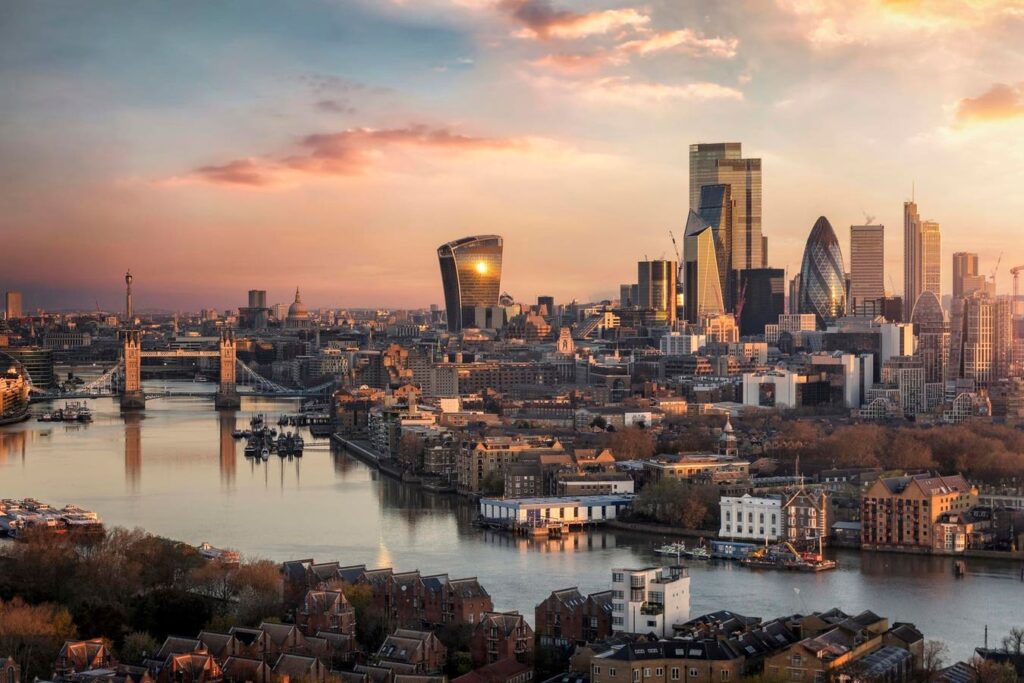The United Kingdom doesn’t have Europe’s largest GDP, a title that belongs to Germany by a wide margin, but London is still the continent’s financial center and the home of its largest stock exchange.
That helps give the U.K. the most representation of any European country on the Global 2000, Forbes’ annual ranking of the world’s largest public companies, with 68 firms based in the United Kingdom on the list. That’s 19 more than Germany and more than any nation in the world aside from the United States, China, Japan and India.
Very few of those companies are anywhere near the top of the list, however. HSBC Holdings at No. 15 and Shell at No. 23 are the only two of those 68 companies that are ranked among the top 100 on the overall list. HSBC is Europe’s largest bank, with $3 trillion in assets. Shell is among the world’s largest energy producers, with $284 billion in 12-month sales and $16 billion in net profit, though both of those numbers have slightly declined year over year. The Global 2000 ranks companies based on their sales, profits, assets and market value using stock prices and the latest 12 months of data available as of April 25 this year.
Many of the U.K.’s largest companies are financial institutions, including Barclays, Lloyds Bank, NatWest and Standard Chartered, which are in the top 250 in the world on the Global 2000 and join HSBC as five of the top 11 in the U.K. Barclays revenues grew 9% to $34 billion and profit 34% to $6.8 billion, helping boost its stock price by 35%. That strength was driven by growth in trading income for its investment bank, and it committed last year to return $13.5 billion to shareholders via dividends and share buybacks in a span of two years.
Lloyds, NatWest and Standard Chartered have also announced buybacks worth more than $1 billion in the12 months, and all three have also enjoyed stock price gains of more than 30% in the last year as well. To combat inflation, the Bank of England raised interest rates from near zero to 5.25% between December 2021 and August 2023 and didn’t start cutting again until last summer, providing a boon for banks’ net interest margins. It began cutting rates again last August, though the current rate of 4.25% is still much higher than it was for most of the last 15 years.
Other success stories include BAE Systems (No. 320), Europe’s largest defense contractor which manufactures several types of fighter jets, and aircraft engine maker Rolls-Royce Holdings (No. 330). Both have benefitted from the European Union’s pledge to ramp up defense spending following Donald Trump’s decision to suspend U.S. military aid for Ukraine in March. Rolls-Royce stock has doubled in the last year, and BAE Systems is up 25%.
Britain’s most notable decliner was BP, which fell from the top 50 to 421st on the Global 2000 because of a crash in profitability from $9.2 billion to just $399 million and a 27% decline in its share price. In addition to falling oil prices, BP has been plagued by a series of power outages at refineries in Rotterdam and Whiting, Indiana which have sometimes disrupted operations for weeks.
With BP and Shell shares falling as well as a few other large-cap stocks like drugmaker AstraZeneca and mining firm Rio Tinto, the FTSE 100 index tracking the largest stocks on the London Stock Exchange only managed an 8% gain since last June, underperforming the S&P 500 by four percentage points. The index’s largest sector is financials, making up 23% of its weight, but London’s investors are still anxious for most other sectors to start performing.
MORE FROM FORBES
Read the full article here

